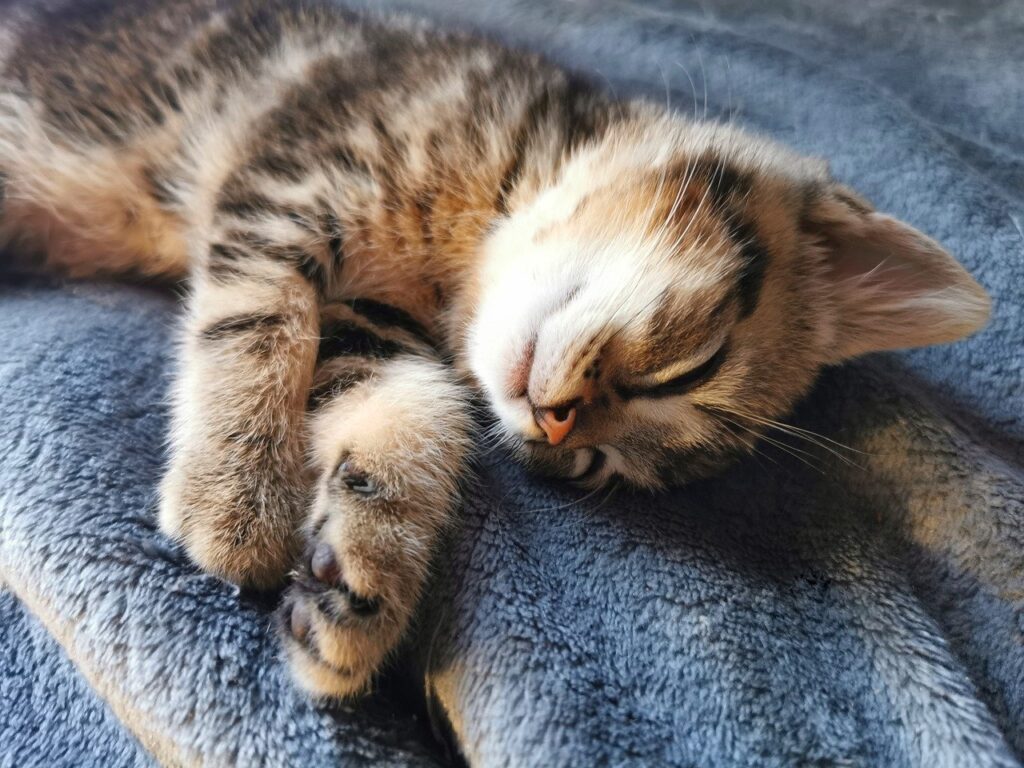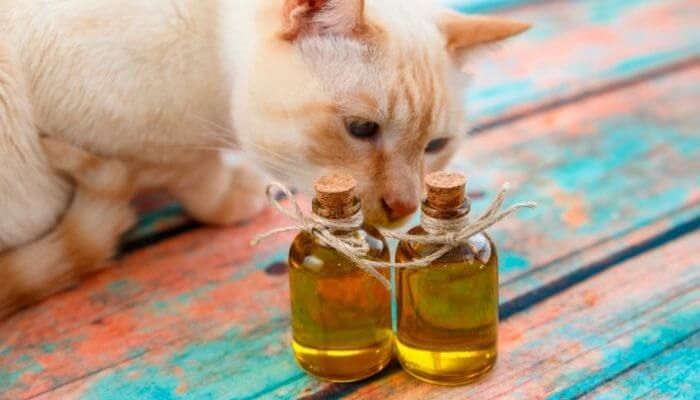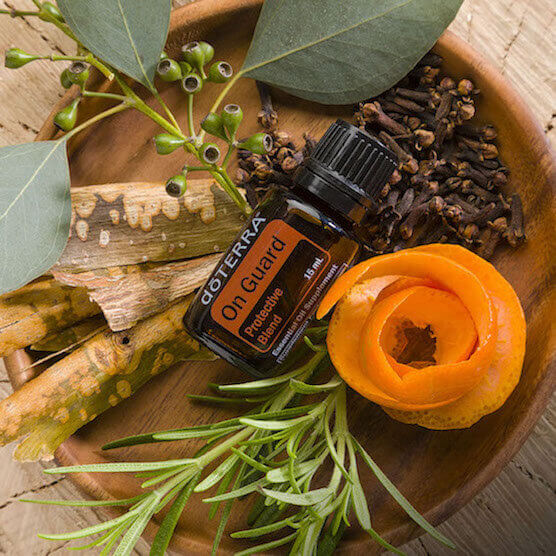If you want your home to smell heavenly and stay clean, you have two options – you can get store-bought products with lots of chemicals in them or go the essential oil route.
Thanks to the rise in pollutants in the environment, many people are choosing to go with the second option.
Essential oils are safe for most people and effective in doing so much around the house.
They are especially loved for their healing and therapeutic benefits. Whether you have a cold, a wound, or just want to calm down or sleep better, essential oils have got you covered.
All members of the family can benefit in one way or another from them.
However, some of these oils can be hazardous to our pets. To this end, we’ll today look at the safety of On Guard Essential Oil around cats.
Can you use it On Guard around your furball?
What is On Guard?
Essential oil enthusiasts are probably aware of the dazzling benefits of the On Guard’s essential oil.
Manufactured by the doTERRA, the oil blend is a versatile product with many uses at home.
The essential oil company markets it as a protective blend used to support the immune system.
The oil contains an aromatic mix of several essential oils including clove bud, cinnamon bark, wild orange peel, rosemary leaf, and eucalyptus leaf.
According to doTERRA, On Guard protects people against seasonal and environmental threats.
Each of the ingredients contributes to the boosting of the immune system in one way or the other.
The oil also finds uses in cleaning surfaces at home, uplifting people, and purifying the air.
Healthline highlights several studies done on the blend showing that it is indeed beneficial in controlling the influenza virus, healing wounds, and promoting immune function among many benefits.
Is On Guard Safe For Cats?

To know whether On Guard is safe around felines or not, we have to look at its ingredients.
Let’s take a look at them below.
1. Wild Orange
Orange falls in the citrus group of fruits along with lemon, grapefruit, lime, and tangerine.
According to the ASPCA, it is toxic to pets – cats, dogs, and horses included.
Pet Poison Helpline also lists it as one of the essential oils to cause poisoning in cats.
Orange contains citrus oil called d-limonene which cats cannot metabolize.
Whether applied orally or through the skin, it can make your kitty sick.
Symptoms of poisoning include vomiting, ataxia, drooling, low heart rate, respiratory distress, liver failure, and low body temperature.
2. Clove
Clove oil is extracted from the clove buds using the hydro distillation method.
It provides a wide range of benefits including pain relief, easing gut upsets, treating infections and respiratory conditions, and fighting cancer.
Sadly, it is also among the many essential oils that experts recommend against using around cats.
It is listed on Pet Poison Helpline as a toxic essential oil. If your cat happens to ingest it or breathe it, it will suffer the same effects as above.
3. Cinnamon
From using it as a spice in the kitchen to baking cakes and sweetening our teas, cinnamon is versatile as it is delicious.
When it is made into an essential oil, it can be used to calm dry skin, alleviate pain, and muscle stiffness, treat rashes, enhance circulation, revive the skin tone, and treat infections.
Again cinnamon oil doesn’t pass the test of safe oils around cats as per the Pet Poison helpline.
The ASPCA classifies the cinnamon root as non-toxic to pets but for some reason, its essential oil is toxic to cats.
4. Rosemary
Rosemary is probably the safest ingredient on this list. It is found on ASPCA’s non-toxic list for pets.
The kitchen staple doesn’t have any known harm to your kitty.
In folk medicine, rosemary oil is used to improve brain function, relieve pain, ease stress, increase circulation, and reduce joint inflammation.
Cat owners can utilize its benefit of repelling bugs such as mosquitoes, harmful viruses, spider plants, and disease-causing bacteria.
Rosemary is not mentioned in leading pet websites as having any ill effects when used around cats.
5. Eucalyptus
Last but not least, eucalyptus, another ingredient in the ON Guard formulation is toxic to cats. This is according to both the ASPCA and Pet Poison Helpline.
The oil contains aromatic phenols which are hard to process by the feline’s system.
If the oil finds its way to your cat’s body, it may damage her organs.
Vomiting and diarrhea will soon follow and if the toxins aren’t removed from the body, severe symptoms are inevitable.
What Now?

Four out of the five ingredients of On Guard are not cat-friendly.
Without putting things like concentrations in place, you know better than to use this product around your kitty.
What’s more, the oil can cause harm whether it is used in a diffuser or applied topically.
This isn’t the best news if you are a fan of the blend but when it comes to your pets, always err on the side of caution.
In case you have already used it around your kitty, watch out for any danger signs.
These include vomiting, diarrhea, tremors, and lethargy. If the cat is exhibiting any of these symptoms, rush her to the vet to have the oil flashed out of her system.
Parting Thoughts
On Guard is undoubtedly beneficial for health, hygiene, and other uses.
The fact that it is not safe for cats is a bummer.
However, there are endless alternatives you can use while keeping your pet safe.
Get searching!
Which other essential oil isn’t safe around your kitty? Find out from the following posts:
Is Vanilla Essential Oil Safe For Cats?
Is Rosemary Essential Oil Safe for Cats?

Hi! I am Eleanor Price. I started this website after my cat, Louie, almost died from a case of botulism (a type of food poisoning often caused by bacteria that grow on food items). Turned out that my cat’s diet was the problem. I have made it my duty to provide the best information and recommendations about everything cat lovers need to know about their felines’ health and wellbeing. My goal is to find the most informative content on anything feline-related and share it with fellow hardworking kitty lovers.

